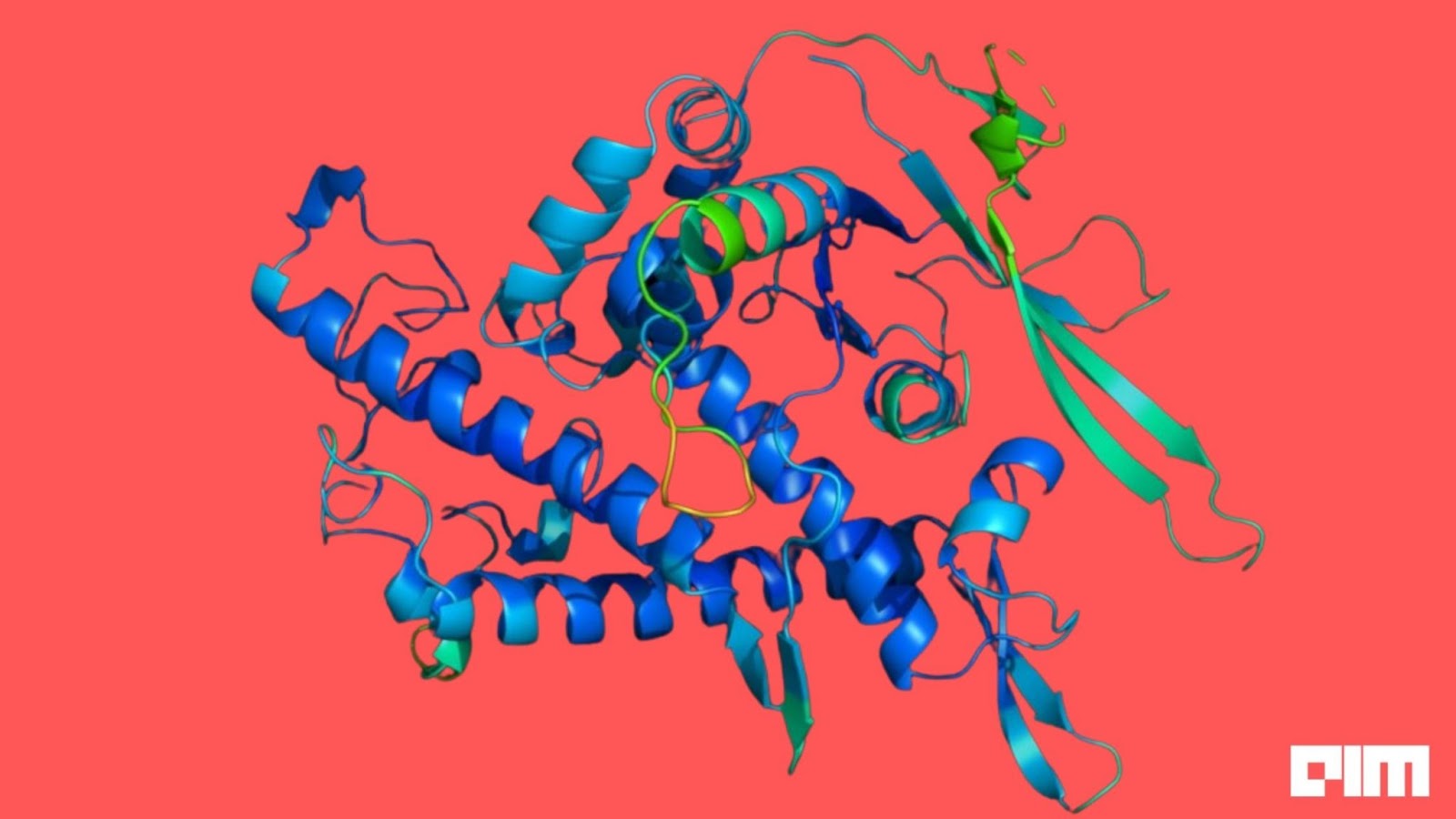For over 50 years, scientists were stuck on the protein-folding problem. It’s like trying to figure out how a complex origami structure folds up. But then, in 2020, DeepMind’s AlphaFold cracked the code. It aced a big contest by predicting how proteins fold with an amazing 90% accuracy.
Jump ahead two years, and AlphaFold isn’t just a star—it’s like a superhero for understanding proteins. By 2022, it had understood the shapes of a whopping 200 million proteins, almost all we know about.
But DeepMind is not the only player. After AlphaFold’s success, labs worldwide joined the race to solve the protein puzzle. The story of protein folding keeps evolving, and it’s far from finished.
Here are 7 updates from 2023 in the domain of protein folding:
A new detailed AlphaFold
In October, Google DeepMind and Isomorphic Labs announced an upgrade to AlphaFold. This “next generation” AlphaFold claims to go beyond predicting proteins, extending its capabilities to forecast nearly all molecules in the Protein Data Bank, a repository housing the three-dimensional structural information of diverse biological molecules.
The highlight is its ability to consistently achieve “atomic accuracy” in predicting molecular structures, encompassing ligands and nucleic acids like DNA and RNA.
According to statements from the research laboratory involved, this advancement can help across various domains, including proteins, ligands, and nucleic acids. This development signifies not merely incremental progress but rather a substantial stride into the intricate landscape of molecular interactions.
AlphaFold wins the 2023 Lasker Awards
The brains behind AlphaFold Demis Hassabis and John Jumper won the Albert Lasker Basic Medical Research Award for their work in October.
This a big deal because it’s not just any award; lots of people who win this one end up winning the Nobel Prize later. If things go as they usually do, this could be the first time that research on AI, like AlphaFold, gets a shot at the Nobel Prize. In the last 20 years, a bunch of people who won the Lasker also got the Nobel – 32 of them, to be exact.
AlphaMissense
Google DeepMind also launched something called AlphaMissense. It’s a special version of AlphaFold that got really good at figuring out if certain genetic changes, called missense variants, are a big deal or not. These changes happen when one tiny part of our genes gets switched up, leading to a different building block in the protein.
The good part is that they did not keep this tech to themselves. The database they used is now open to all scientists on GitHub, a place where they share computer code. And if you want to dive deeper, there’s a whole study about it in the Science journal.
What makes AlphaMissense stand out is that it learned a lot from studying human and primate DNA. So, it can spot which genetic changes are pretty common. This could be a big help in understanding and predicting these genetic tweaks.
BioNemo Cloud
At Nvidia’s GTC 2023 event, the big company introduced BioNeMo Cloud. It’s part of their AI Foundations suite and aims to help out with life sciences research, finding new drugs, and working on proteins.
The interesting part about BioNeMo Cloud is that it gives scientists access to AI models that are already trained. They can then tweak these models to fit their own data. It’s like having a head start. Plus, it’s all in the cloud, making it easier and faster. Big biotech company Amgen and a bunch of startups are already using it to speed up their drug discovery work.
AlphaFold meets AWS HPC GPU
AlphaFold V2 got a major upgrade by teaming up with Amazon Web Services (AWS). They used HPC GPUs from NVIDIA and DLAMI instances to make it work. The platform’s predictions about molecules are mostly accurate and way better than traditional lab methods.
The Lab-R team found a way to make AlphaFold predict way faster by using these special HPC GPUs. It’s like going from a slow 8-hour process on regular computers to a quick 1-hour show on AWS HPC.
They also claimed that in less than an hour (around 45 minutes), they could run 400 sequences. If they tweak things more, they might get it down to just 30 minutes.
Meta Disbands the protein folding team
Meta decided to part ways with the team behind the groundbreaking ESMFold which was introduced two years ago. Comprising a dozen members, this team not only pioneered ESMFold but also curated an expansive database housing 600 million protein structures.
This move by Meta suggested a shift in focus from life sciences towards a more revenue-centric trajectory centred on generative AI.
Wolfram ProteinVisualisation
The Wolfram ProteinVisualisation thing is like a toolbox for exploring and seeing 3D structures in bio-molecular structures. It helps researchers look at the ins and outs of molecules, calculate contact maps and angles, and study proteins and DNA mixtures. With eleven different tools, it lets you see things like protein backbones, angles, and contact maps.
For an in-depth understanding, AIM recently conducted an interview with the creator, Soutick Saha.
The post 7 Protein Folding Updates From 2023 appeared first on Analytics India Magazine.



![[CITYPNG.COM]White Google Play PlayStore Logo – 1500×1500](https://startupnews.fyi/wp-content/uploads/2025/08/CITYPNG.COMWhite-Google-Play-PlayStore-Logo-1500x1500-1-630x630.png)